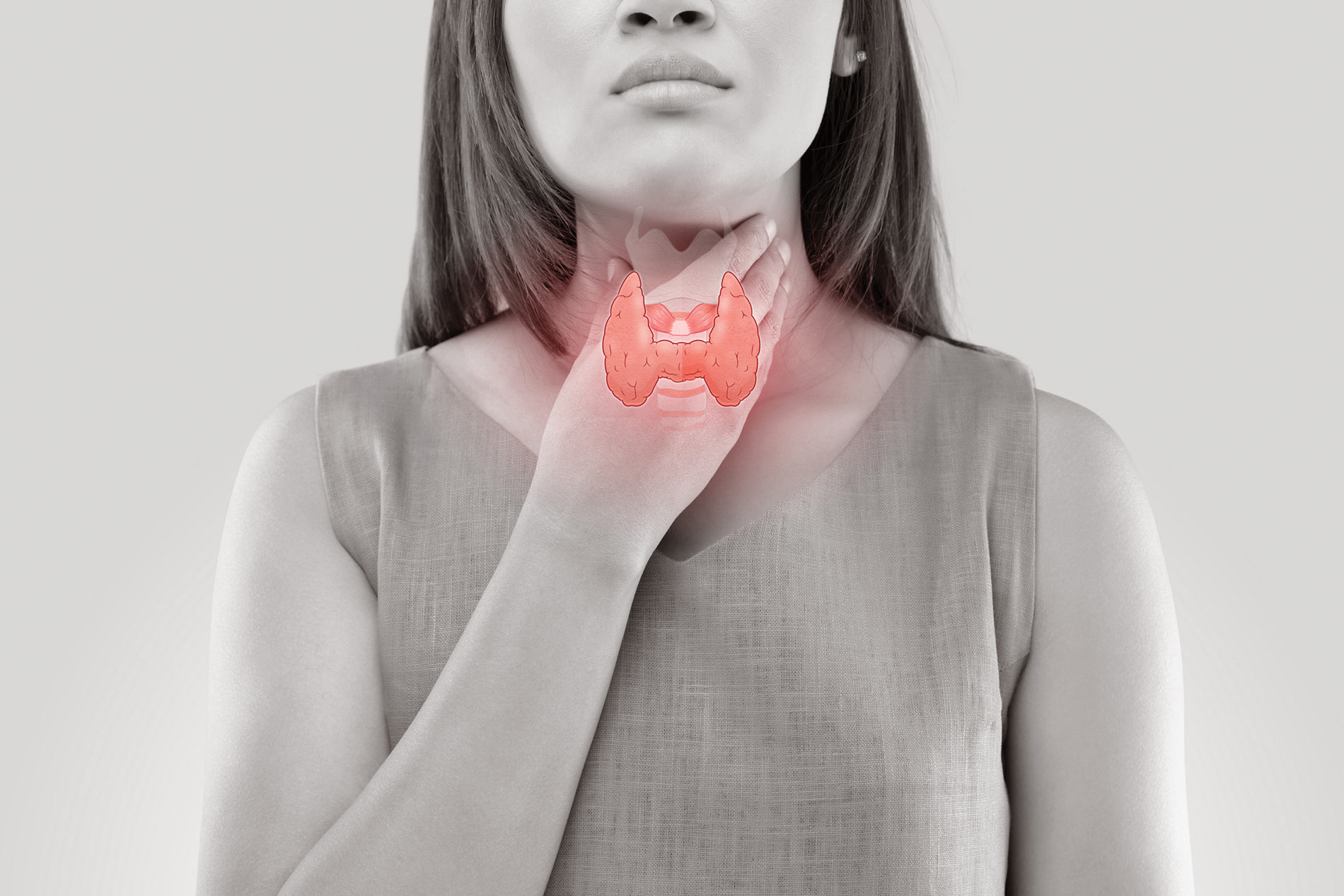If you’re having trouble getting pregnant, experiencing abnormal periods or are dealing with early menopause, your thyroid could be to blame.
When many think of endocrine disorders, they think of estrogen and testosterone problems. However, a more common endocrine disorder is abnormal levels of the thyroid stimulating hormone (TSH). The side effects of thyroid disorders can be confusing and easily misdiagnosed.
What is the Thyroid?
The thyroid is a small gland in the neck behind the larynx. Its main functions are to regulate energy production and metabolism throughout the body, everywhere from the heart to the skin. Too much or too little of this hormone can have serious consequences.
Many patients with thyroid disorders experience excessive fatigue, depression, hair loss, unexplained weight gain and sleep problems. However, routine blood tests often fail to detect insufficient levels of this hormone in some patients. Also, symptoms can vary widely from person to person, making it harder to detect the issue.
Thyroid Disorders in Women
Thyroid disorders can affect both adults and children, but women are more likely than men to have a thyroid disorder. This is because the thyroid gland has much to do with a woman’s reproductive system. Insufficient levels of this hormone can greatly affect a woman’s body.
Research shows that a slightly underactive thyroid may affect a woman’s ability to become pregnant. According to a study published in The Journal of Clinical Endocrinology & Metabolism, women who have unexplained infertility were nearly twice as likely to have higher levels of TSH than women who did not conceive due to known issues with their partner’s sperm count.
A reason for this might be that an overactive thyroid can affect ovulation. Thyroid disorders have the potential to prevent an egg from dropping for fertilization.
For women with an under active thyroid, the ovaries are at an increased risk for cysts, which can also prevent ovulation.
Thyroid disorders can also cause puberty and menstruation to occur abnormally early or late and can cause very light or very heavy menstrual periods. It can even cause absent menstrual periods and early onset menopause (near the early 40s or earlier).
Who’s at Risk?
Women with goiter, anemia or Type 1 diabetes are at a greatest risk for developing thyroid issues. Also, women with thyroid problems in the past or who have had radiotherapy affecting the thyroid gland are more likely to develop these issues.
Symptoms of Hypo/Hyperthyroidism
Hypothyroidism occurs when the thyroid isn’t making enough hormones. It can cause one to feel very cold, constipation, muscle weakness, weight gain, pale skin and a slow heart rate, among other symptoms. Hyperthyroidism occurs when the thyroid is making too many hormones, and it can cause weight loss, nervous or anxious feelings, increased sweating, trembling, trouble sleeping and feeling hot, among other symptoms.
If you believe you are at risk for either, visit an endocrinologist to get an examination.
Bio:
Dr. Sowmya Suryanarayanan is a board-certified endocrinologist with a special interest in thyroid and parathyroid disorders. She treats patients at the UCF Health Lake Nona office.





Comments